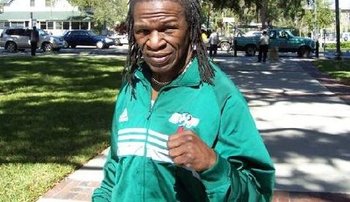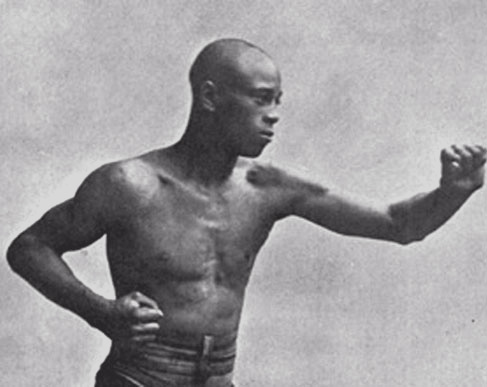I did not see evidence of Marcos Maidana biting into Floyd Mayweather's glove during the multiple replays of last night's fight. His jaw is not moving at all, there is only Mayweather's glove in his face.
I did see referee Kenny Bayless break the fighters before they even came close to a clinch.
Clearly there were behind the scenes, pre-fight conversations with Bayless to be on the lookout for any dirty tactics on the part of Chino. But I thought that giving Mayweather the Magic Johnson treatment throughout was a bit much.* Maidana was penalized a point without any warning and when he suffered his own low blow Bayless seemed reluctant both warn Money and give Maidana a break.
Kudos to Brian Kenny for calling out Bayless for what he termed to be a “horrible job.” The announcing crew argued whether or not it would have been a different fight had Maidana been allowed to fight inside but that is clearly academic.
Maidana gave a flat performance as did Mayweather.
Mayweather put on his dancing shoes and did what he does best...Control the distance and the pace. But he never landed any multi-punch combos like he did in the last rounds in his bouts against Miguel Cotto or Canelo Alvarez. He was content to land the pot-shot right and do just enough to win the rounds.
Maidana did not throw punches with the same fire he had when he fought Broner or Mayweather the first time. Nor did he appear to have the same bull-like strength.
Alex Ariza, where have you gone?
It was a boring affair save for a few minor exchanges. At the end of the third round, Maidana appeared to have shaken Mayweather with an overhand right when the bell sounded. Mayweather grabbed the top rope as he made his way back to his corner...Really hard to tell how hurt he was, if at all.
That punch was really the only major highlight of the fight aside from the alleged bite. Aside from that one punch, it was all Mayweather with pot-shotting right-hands.
Ironically, Mayweather won the rematch by a wider margin than the first but looked more vulnerable this go around.
During the post fight interview, Mayweather conceded that he felt “dry and dead” (gotta lay off the strippers/sugar babies before fights) and gave the same non-committal answer regarding a Manny Pacquiao fight.
I read a couple of on-line reports and the conjecture is that he will face either Amir Khan or have a rematch with Miguel Cotto. I see both fights being a strong possibility. Mayweather would want to add Cotto's middleweight title to his legacy while a Khan fight as been proposed for a long while now. The announcing team discussed the prospect of a Keith Thurman fight and I see that as unlikely as a Pacquiao match. Thurman's name recognition does not extend beyond the hardcore base. “One Time” would be less money and a harder fight.
*For 1980s NBA fans...I'm referring to how Magic Johnson used to get to the free throw line for every foul, real or imagined.











